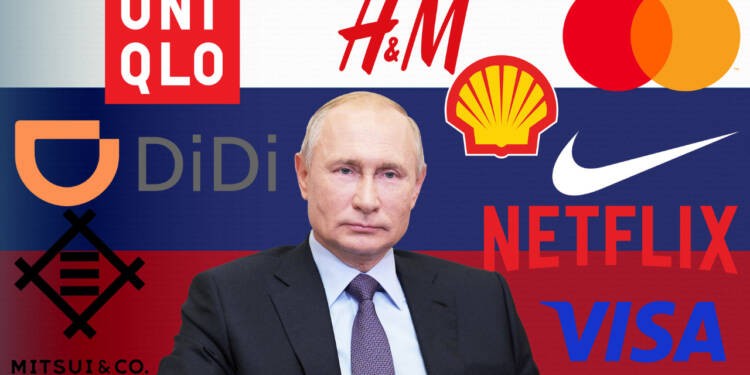 |
| How the Russian President turned the Western boycott into a 'gold mine'. (Source: AP) |
Observers say that Russian President Vladimir Putin has turned the trend of Western companies leaving the domestic market into a “gold mine”. If a company wants to leave Russia, the Kremlin will not stop it, but it must pass the conditions set by the government . Of course, those conditions must be beneficial to the government and the Russian elite - this is the content of a report by Globo.
As reported by international media, after Moscow launched its military campaign in Ukraine in February 2022, hundreds of foreign companies announced their withdrawal from the Russian economy. Politicians and activists predicted that this wave would have a significant impact, restraining the Russian economy and weakening the Kremlin's military efforts.
However, President Putin always had another plan. He turned the “wave” of large Western companies leaving Russia into a super-profitable “bargain” for the Russian elite loyal to the state.
Moscow has forced companies wanting to sell their businesses in Russia to offer the “best possible” price, sometimes as low as zero, according to observers.
According to the NYT , Western companies that have announced their withdrawal from Russia have declared losses of more than $103 billion since the start of the Russia-Ukraine conflict. Moscow has sought to extract “as much as possible” from companies that want to stop operating and leave the country by dictating the terms of their withdrawal, according to a financial analysis conducted by the NYT .
The Kremlin is also said to have imposed increasing tariffs on these “exits,” which brought in at least $1.25 billion to Russia’s military coffers last year, the NYT report notes.
At the same time, according to the NYT commentary, no deal is really "safe", for example, the Dutch beer company Heineken, although it was valued and found a buyer in the spring, the Russian government did not accept the deal and then required the business to redirect the transfer of assets to a loyal local producer.
Overall, Moscow has succeeded in overseeing one of the largest redistributions of wealth in Russia since the collapse of the Soviet Union, with huge industries – elevators, tires, industrial paints, etc. – now being transferred to Russian companies, the Globo report concludes.
In a recent case, on December 24, President Putin signed a decree paving the way for Rosbank, a pioneer in developing Russia's capital markets, to buy shares in leading Russian companies from French bank Societe Generale (SocGen). According to the decree, Rosbank can buy SocGen's shares in energy companies such as Rosneft and Gazprom, metal producers such as Norilsk Nickel and Severstal, and other leading Russian companies.
SocGen had assets worth 22.4 billion euros ($24.6 billion) in Russia as of the end of June 2021, according to the European Banking Authority. SocGen's stakes in Russian companies are relatively small, with a 0.04% stake in Gazprom and 0.02% in Alrosa, the world's largest diamond producer. However, the total value of the assets under review still runs into billions of rubles.
French bank SocGen withdraws from Russia and completes the sale of its branch in the country in May 2022.
Or Moscow’s order to revoke the multibillion-dollar stakes of Wintershall Dea (WINT.UL) and OMV (OMVV.VI) in Russian Arctic gas projects. Under a presidential decree published late on December 19, the stakes held by Austria’s OMV and Germany’s Wintershall Dea in the Yuzhno-Russkoye field and in the Achimov projects will be transferred to newly formed Russian companies.
President Putin's decree formalized the loss of control that had been signaled by OMV and Wintershall since January 2023.
“President Putin's decree is further confirmation that Russia is no longer a reliable and unpredictable economic partner in every respect,” Wintershall's spokesman said in a written request for an interview with Reuters .
Explaining Russia's use of strong measures against foreign assets, Kremlin spokesman Dmitry Peskov once said that this was a response move by Moscow, but not a move originating from Russia. "We are only reacting to the situation created by many European countries."
Hundreds of billions of dollars worth of Russian state assets, as well as the assets of Russian businessmen and investors, are currently frozen in the West. Last year, Germany took control of the Russian-owned Schwedt refinery, which supplies 90 percent of Germany's fuel needs.
According to reports, since February 2022, about $300 billion of Russia's foreign exchange reserves have been frozen by the West under sanctions imposed since Moscow began a special military operation in Ukraine.
The 2022 statistics show that the Russian Central Bank's reserves fell by 8.4%. In July 2022, the EU's Belgium-based clearing house Euroclear revealed that in the first half of this year, it earned about 2.28 billion euros ($2.4 billion), of which more than 1.7 billion euros were accumulated from assets frozen in Russia.
Some European countries intend to use frozen Russian assets to cover the costs of rebuilding Ukraine.
In October 2023, Russian Finance Minister Anton Siluanov warned that Moscow would respond in kind if the West used the revenue from frozen Russian assets. "Russia has also frozen the assets of unfriendly countries. So, if the West does so, we will do the same," Mr. Siluanov said.
Source



![[Photo] General Secretary To Lam attends the 8th Congress of the Central Public Security Party Committee](https://vphoto.vietnam.vn/thumb/1200x675/vietnam/resource/IMAGE/2025/10/4/79fadf490f674dc483794f2d955f6045)
![[Photo] Solemn opening of the 8th Congress of the Central Public Security Party Committee, term 2025-2030](https://vphoto.vietnam.vn/thumb/1200x675/vietnam/resource/IMAGE/2025/10/4/f3b00fb779f44979809441a4dac5c7df)
![[Photo] Bustling Mid-Autumn Festival at the Museum of Ethnology](https://vphoto.vietnam.vn/thumb/1200x675/vietnam/resource/IMAGE/2025/10/4/da8d5927734d4ca58e3eced14bc435a3)


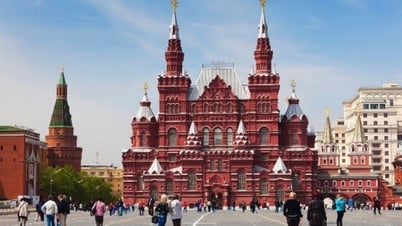
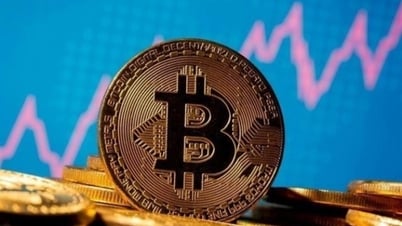




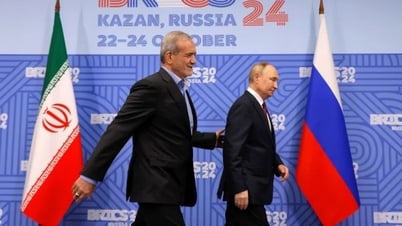
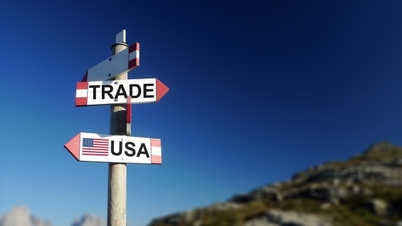
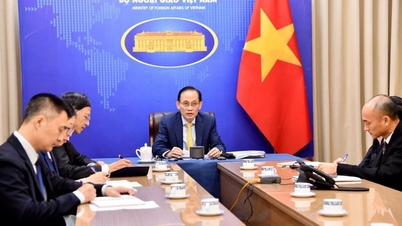


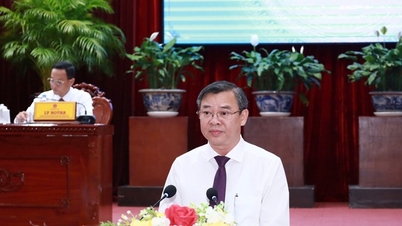
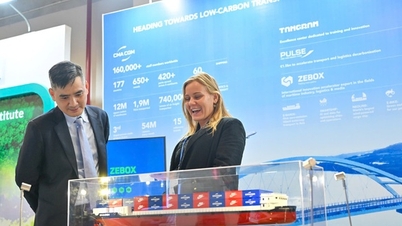
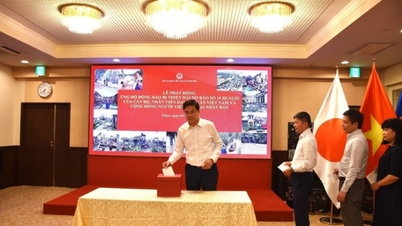






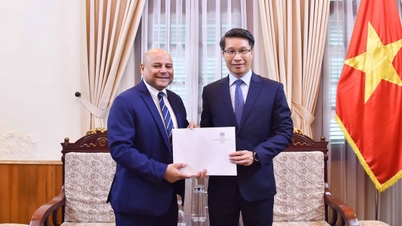
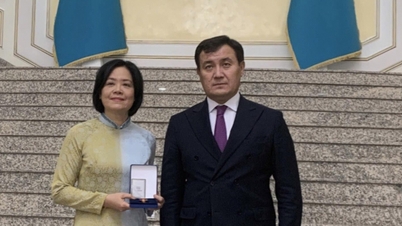
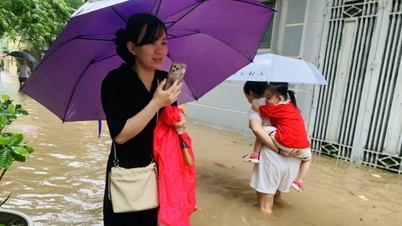
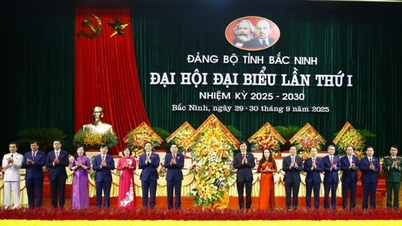
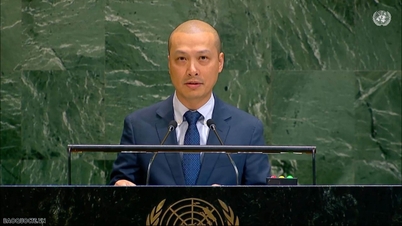
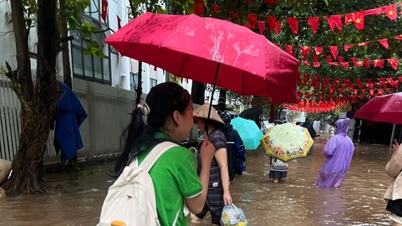


























![[VIDEO] Summary of Petrovietnam's 50th Anniversary Ceremony](https://vphoto.vietnam.vn/thumb/402x226/vietnam/resource/IMAGE/2025/10/4/abe133bdb8114793a16d4fe3e5bd0f12)

![[VIDEO] GENERAL SECRETARY TO LAM AWARDS PETROVIETNAM 8 GOLDEN WORDS: "PIONEER - EXCELLENT - SUSTAINABLE - GLOBAL"](https://vphoto.vietnam.vn/thumb/402x226/vietnam/resource/IMAGE/2025/7/23/c2fdb48863e846cfa9fb8e6ea9cf44e7)















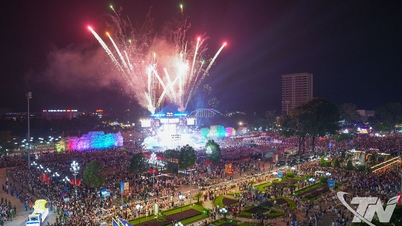



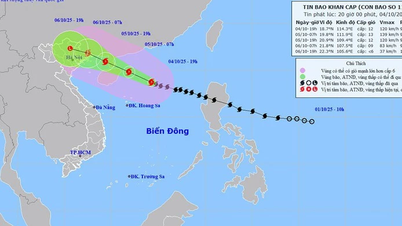

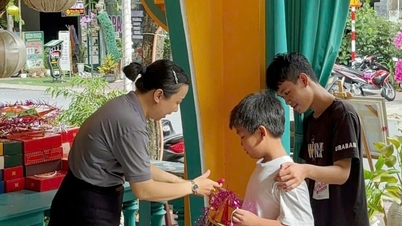












Comment (0)